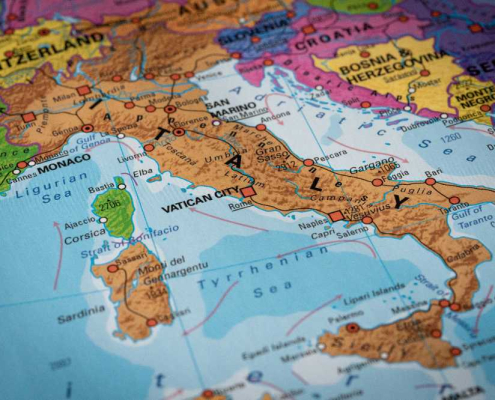
Franchisors: why and how to adapt their Disclosure Document and Standard Franchise Agreement for Italy
Every foreign franchisor wishing to expand its franchise in Italy needs to adapt the disclosure document and franchise agreement of the Italian legal and commercial environment. Let’s briefly examine what adjustments and changes foreign franchisors need to expand their franchise in Italy.

Franchising confirms to be a growing business model in Italy also in 2022
The Franchising is confirmed, also in 2022, a business model in growth and success in Italy, despite the economic crisis. In Italy, operating franchises, stores and employees grew between 2021 and 2020. The 2021 turnover of the Italian franchise industry stands at 28,867 million euros, an increase of 6.7% compared to 2020.

Expanding a franchise in Italy through Master franchising: a brief guide
Master Franchising is by far the most common method of expanding a foreign franchise network in Italy. Through Master Franchising, the franchisor grants to a business partner based in Italy the right to conclude exclusive sub-franchise agreements in a certain area with affiliates , granting them the right to use the franchisor’s trademark and franchise package. There are many advantages for a franchisor in using the Master Franchise to expand its franchise internationally.

Franchising in Italy: the regulation of misleading and comparative advertising: the sanctions for franchisors
The advertising of a franchise in Italy is subject to complex legislation, aimed at ensuring the proper functioning of the market and competition. The applicable rules are different depending on whether the advertising is aimed at potential affiliates or end customers. Legislative Decree No. 145/2007 prohibits misleading advertising, that is, advertising that misleads recipients and/or competitors and compromises the economic behaviour of the recipients. Comparative advertising is considered lawful by Italian law under certain specific conditions.
The body responsible for the application of the legislation on misleading and comparative advertising in Italy is the Italian Competition Authority.

Franchise agreements in Italy: duration, renewal, withdrawal, termination
According to Italian law, franchise agreements can be signed for either a fixed or indefinite period and must have a minimum duration of three years. In fixed-term franchise contracts, the parties may not withdraw freely unless expressly provided for in the contract.

Franchising in Italy: almost 29 million euros the total turnover in 2021, up by +6.7% compared to 2020
Franchising is a growing business model in Italy, despite the economic crisis. Franchising remains the right choice for those who demonstrate a strong desire for entrepreneurship, but also a safe place for comparison, where to team up even in the most complex situations.

Abuse of economic dependence and franchising: the AGCM opens a procedure against Mc. Donald’s in Italy
The Italian Competition and Market Authority (“AGCM”) initiated an investigation against McDonald’s for alleged abuse of economic dependence, upon reporting by some former franchisees in the McDonald’s network, who had managed restaurants in some Italian regions.

How to effectively register and protect a trademark in franchising
Brands play a very important role in promoting companies' products and services. The holder of a registered trademark has, in general, the right to make exclusive use of it and to prohibit third parties, unless he agrees, from using identical or similar trademarks in his economic activity. It is important for every franchisor to know, both during and after the registration of the trademark, which tools and conditions allow him to effectively protect his brand.

Litigation in franchising: where does it come from, how to prevent it, how to solve it
Franchise networks, in Italy as in the rest of the world, are often characterized by a high level of conflict within them, which can give rise to disputes. Each franchise network should prevent conflict situations as much as possible and manage the conflict effectively, with the appropriate assistance of an experienced franchise lawyer.

Investments in franchising: how they are regulated in Italy from a legal point of view
The issue of the investments that franchisees must make in order to carry out their business within a franchise network is very important from a legal point of view. According to The Italian law n. 129/2004 on franchising, the franchisor must inform the franchisee on the costs related to the franchise network in which it operates, clearly and before the contract is signed.

Franchising in Italy: the 2020 scenario after the Covid 19 pandemic is surprisingly (or not?) positive
Assofranchising has published its updated annual survey on the Italian franchise scenario, referring to the year 2020. Despite the inevitable negative effects of the pandemic, franchising is one of the main engines of the Italian economy in Italy, being one of the sectors that reacts most positively to the economic crisis. These figures are very important, given the large number of franchised outlets that have been closed due to government restrictions on Coronavirus in Italy, and reflect the proactive approach of most franchisors in Italy towards the pandemic and the relationship with affiliates within the network.

Abuse of economic dependence and franchising: the AGCM initiates an investigation against Benetton in Italy
The Italian Antitrust Authority initiated an investigation against the Benetton group for a suspected abuse of economic dependence, regarding franchising agreements for the sale of products under the Benetton brand.
